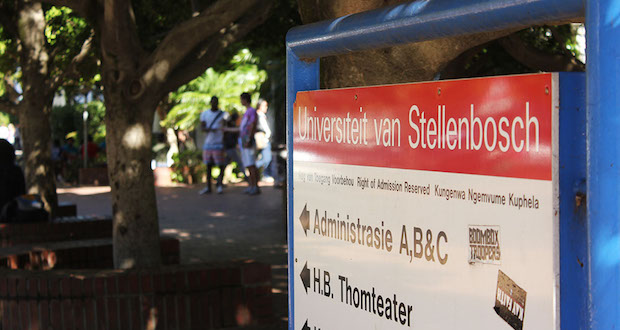Cape Town has a racism problem. We know that. In a new campaign that seeks to build an inclusive city, the City of Cape Town is trying to do some damage control, but RA’EESA PATHER argues that it’s missing the point.Â
Cape Town’s streets aren’t safe for black people. Tim Osrin’s assault of Cynthia Jonie – a black domestic worker who was simply walking down the street in his suburban neighbourhood – is just one example of a violent, race-motivated crime that’s been perpetrated in the city.
On Human Rights Day, City of Cape Town executive mayor Patricia de Lille launched the Inclusive City campaign, which aims to make restaurants more inviting to brown-skinned folk, and apartment hunting a little easier for Capetonians of a darker pigment.
“The City of Cape Town has shown leadership and courage by launching this campaign and we challenge all other municipalities to create similar platforms for open dialogue on racism,†the DA said in a statement endorsing De Lille’s initiative.
Capetonians are encouraged to participate in the campaign through social media. The photographs they submit are shared with the words “Know your rights, you can’t be discriminated against†and “Don’t let racists speak for youâ€.
Don’t let racists speak for you. Pledge your support for Cape Town against racism. http://t.co/ORrr0w2o5n
— Patricia de Lille (@PatriciaDeLille) March 21, 2015
But the campaign hasn’t achieved the widespread support it may have anticipated, and for good reason – it makes victims responsible for the racism they endure, instead of holding racists to account. The Inclusive City project seems to focus on groups who are often accused of racism, encouraging them to stand up and fight against the stereotype, while doing little to include the experiences of people who are excluded from the city as a result of the prevalent racism. In one tweet, the misguided approach of the campaign is strikingly obvious, as one participant claims that racism hurts “especially the tourism†in Cape Town.
Tourism, fam? Not the people??? “@CityofCT: “Racism hurts Cape Town in many ways, especially the tourism industry” pic.twitter.com/k6NKPMsXkE” — Inkunzi ye lesbian. (@SivuSiwisa) March 31, 2015
In a city where people are denied access to property, are discriminated against at universities, and are shooed away from public spaces, the biggest issue is not that racism hurts tourists, but that it hurts the people of Cape Town.
Through excluding victims of racism in this process to build an “inclusive†city, the City has contradicted itself. Instead – and to its detriment – it has apologised for racists, saying that not everyone is a racist, and disregarding the views of victims whose experiences may suggest otherwise.
Yes, not all people within minority groups are racist, but the subversive nature of racism today also means that not everyone knows when they are being racist.
The infamous incident at the 12 Apostles Hotel’s Azure restaurant, where a black family were at first denied a table even though they had made a reservation, then shuffled off into a corner of the restaurant, and then told to keep their voices down, proves that.
Beyond the narrow scope of the campaign is a wider failure to acknowledge the structural racism that persists in the city.
Verwoerd’s “Grand Design†is still alive and kicking, and although the City has partnered with the SA Property Owners’ Association (Sapoa) to battle spatial exclusion, it needs to show a proper understanding of how racism works before it can tackle the problem.

![CityofCPT_AntiRacism [Twitter]](https://www.thedailyvox.co.za/wp-content/uploads/2015/04/CityofCPT_AntiRacism-Twitter.jpg)







